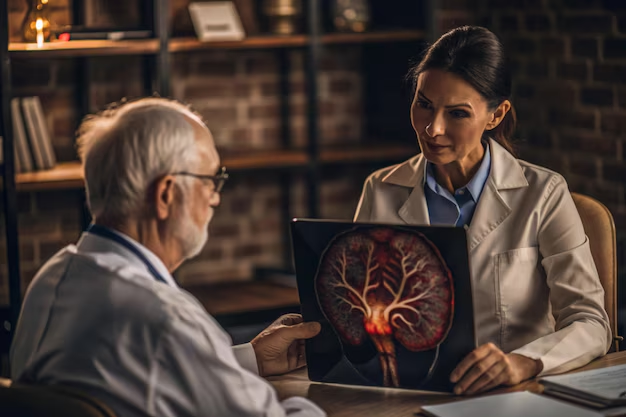Your Guide to How Do You Check For Parkinson's
What You Get:
Free Guide
Free, helpful information about Parkinsons FAQ and related How Do You Check For Parkinson's topics.
Helpful Information
Get clear and easy-to-understand details about How Do You Check For Parkinson's topics and resources.
Personalized Offers
Answer a few optional questions to receive offers or information related to Parkinsons FAQ. The survey is optional and not required to access your free guide.
How to Identify Parkinson's: Key Steps and Essential Resources
Recognizing the signs of Parkinson's disease can be daunting, but understanding the process is crucial in managing this neurological condition. If you or a loved one suspect Parkinson's, it's important to know the steps involved in checking for Parkinson's and the resources available for support. Here's an essential guide to navigating this journey.
Understanding Parkinson's Symptoms
The first step in identifying Parkinson's is recognizing the symptoms. It's important to note that these symptoms can vary significantly between individuals and may develop gradually. Key symptoms include:
- Tremors: Often starting in the hands or fingers.
- Bradykinesia: Slow movement over time.
- Muscle Stiffness: Occurs in any part of your body.
- Impaired Balance: Leading to unsteadiness or frequent falls.
- Changes in Speech and Writing: Including slurred or monotone speech.
If these symptoms sound familiar, the next logical step is to consult a healthcare professional for a thorough evaluation.
The Diagnosis Process
1. Consulting a Specialist
Visiting a neurologist is crucial for an accurate diagnosis. A specialist will conduct a complete physical and neurological examination to check for signs of Parkinson’s.
2. Evaluating Medical History
The doctor will review your medical history, including a discussion about medications and family history of the disease. Although there is no definitive test for Parkinson’s, this information can help rule out other conditions.
3. Neurological and Physical Exams
These exams can help detect signs of bradykinesia, rigidity, and tremors. Additional tests might be conducted, including MRIs or other imaging tests, to exclude other disorders.
4. Responsive Assessment to Medication
Sometimes, a trial treatment with Parkinson's medication is prescribed. Improvement upon this medication often supports the diagnosis.
5. Ongoing Evaluation
Regular follow-ups help monitor the progression of symptoms, ensuring comprehensive management of the disease.
Accessing Support and Resources
Navigating Parkinson’s involves more than just medical evaluations. Once diagnosed, or when symptoms threaten financial stability, it's vital to explore various financial and educational support systems to ease the journey.
Financial Assistance
- Government Aid Programs: Programs such as Social Security Disability Insurance (SSDI) can provide financial support.
- Medicare and Medicaid: These can help pay for medical costs related to the treatment and care of Parkinson’s.
- Nonprofit Organizations: Many offer financial assistance for medications, care, and other necessary services.
Debt Relief and Credit Solutions
Dealing with Parkinson’s often brings financial stress. Understanding debt management options is key to staying financially secure:
- Debt Management Plans: Consider working with nonprofit credit counseling services to manage debts effectively.
- Credit Card Solutions: Look into special credit card offers that include lower interest rates for medical expenses.
Educational Opportunities
- Workshops and Webinars: Offered by Parkinson’s advocacy groups, these educational programs provide valuable insights into disease management.
- Grants for Caregivers: Educational grants are available for those providing care, helping them access specialized training.
Empowerment Through Knowledge and Support
With the right preparation and resources, individuals with Parkinson's can lead a life that’s both fulfilling and financially stable. New challenges can arise, but informed decisions and a robust support network make managing Parkinson's much more navigable.
Here are some helpful resources to consider:
- 🏛️ SSDI and SSI: Financial aid for disabled individuals.
- 💊 Medicare/Medicaid: Assistance with medical expenses.
- 💸 Debt Management Services: Help manage and reduce debt.
- 🎓 Educational Grants for Caregivers: Train for specialized Parkinson’s care.
- 📚 Nonprofit Organizations: Offer various financial and educational support specific to Parkinson’s.
Equipped with this information, you're well-prepared to handle the complexities of Parkinson's with both confidence and support.
What You Get:
Free Parkinsons FAQ Guide
Free, helpful information about How Do You Check For Parkinson's and related resources.

Helpful Information
Get clear, easy-to-understand details about How Do You Check For Parkinson's topics.

Optional Personalized Offers
Answer a few optional questions to see offers or information related to Parkinsons FAQ. Participation is not required to get your free guide.


Discover More
- Are There Environmental Causes Of Parkinsons
- Can Alcohol Cause Parkinson's
- Can Concussions Cause Parkinson's
- Can Concussions Cause Parkinson's Disease
- Can Dogs Get Parkinson's Disease
- Can Dogs Get Parkinsons
- Can Dogs Have Parkinson's
- Can Dogs Have Parkinson's Disease
- Can Females Get Parkinson Disease
- Can Head Trauma Cause Parkinson's
